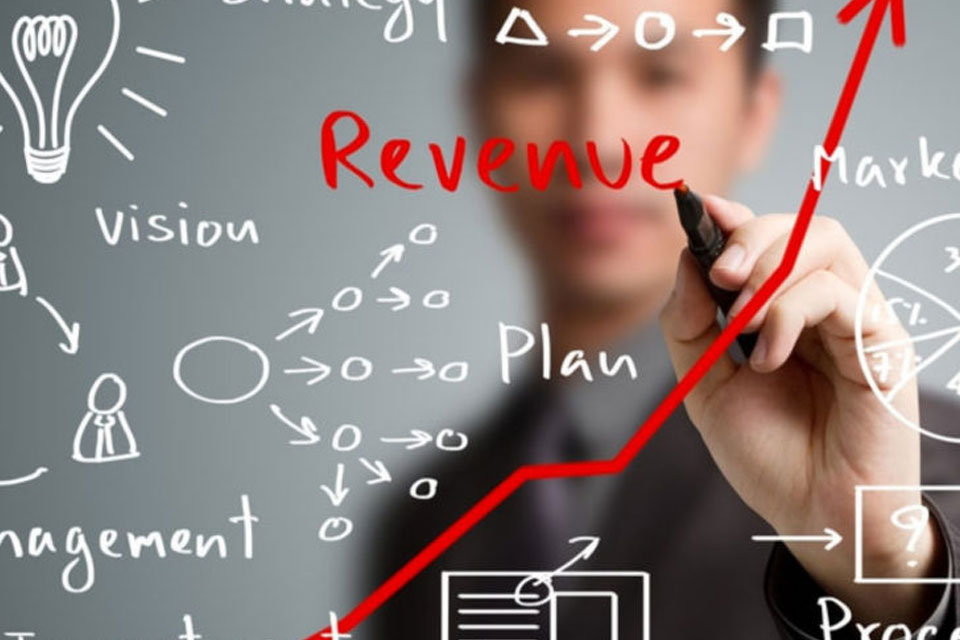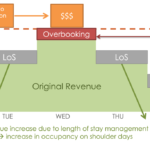Blog

A 2003 McKinsey study of 1500 companies across a range of industries on the impact on different profit levers that there is a 2.7% increase in profits when 1% improvement in Fixed Cost, 3.7% increase in profits when 1% improvement in volume of sales, 7.3% improvement in profits when 1% improvement in variable costs, however, the profitability goes up to 11% when the pricing improves by 1%.
Most of the hotels that contract rates in the negotiated segments have very limited opportunity to optimize on the pricing for which generally the hotels have to wait until the contracting period comes to an end or subject to periodic evaluation of the production. On the other hand, unqualified segment business is the only segment which has a larger opportunity to do price optimization. And that’s possible if one can shift to Dynamic Pricing from a traditional static pricing with fixed discounts.
WHAT ADVANTAGES DOES DYNAMIC PRICING OFFER:
The most important advantage of dynamic pricing is that it provides an agile pricing structure that allows the revenue manager to react quickly to the changing market conditions and leverage the pricing structure to maximize the revenues and offer the best value to the customers.
THE BASICS OF DYNAMIC PRICING:
Implementing Dynamic Pricing starts with first understanding your hotel’s existing business pattern and clearly defining the Market Segments. Next, comes the topic of determining the BAR Pricing structure. Multi-tiered BAR pricing is set starting from the lowest BAR to the highest BAR.
At its simplest, the hotel could look at linking various BAR with increasing Occupancy Levels. (Lower Pricing when Occupancy is lower). However, the key to maximizing the Revenue Potential of the hotel lies in accurately forecasting the occupancy for each day, dynamically adjusting the pricing applying various booking restrictions based on the changes in the demand and combining it with inventory control.
UNDERSTANDING SOME BASIC TERMS:
Dynamic Pricing: The strategy of offering variable pricing in line with demand and supply – driven by pricing strategy.
Market Segmentation: For the purpose of demand analysis, the overall market is divided into various segments based on the behavioral pattern of the business. The intent of segmentation is to define major types of demand, identify customer characteristics, business behavior and estimate future growth trends. By analyzing demand in these segments, the hotel can determine how they can compete with the competitor in their market and strategize accordingly. Understanding a hotel’s market segmentation and that of its competitors is imperative since it affects occupancy penetration, average daily rate positioning, and potential revenue generators
Special Events: Special events have a positive or negative impact on the hotel occupancy, ADR and revenue. Special events can be one-off (such as a major business event/conference in a city or natural calamity) or recurring events such as trade fair/convention / public holidays/festivals. It is important to look at the historical effect of these events and forecast the demand to adjust pricing, booking restrictions and inventory controls to optimize yield and occupancy during such periods.
BAR: A Daily flexible Rate is often called as Best Available Rate or Best Guaranteed Rate. Recommended for unqualified business when there is no pre-agreed rate. The optimal rate to quote on the probability of booking the guest.
Advanced purchase rate: This discounted rate normally requires an advance reservation with a full, usually non-refundable deposit, appealing to guests with definite travel plans made well ahead of the date of travel. Its also called as Derivative BAR.
USING DYNAMIC PRICING TO YOUR ADVANTAGE:
The success of Dynamic Pricing is in accurately determining the demand and the willingness of the consumers to pay a different price at different times for the same product. It is important to look beyond the volume of demand and understand segment dynamics as well before applying rate controls.
Populate the Derivative BAR with small or deep discounts and fencing around the pricing depending on the discount. Remember heavy fencing would also hamper the customers not to book your hotel irrespective of discounts that have been offered like charging the entire stay if no show or an early departure. So you may want to look at a customized cancellation, no-show, early departure retention policies vis-a-vis the general policies of the hotel.
Decide on the BAR pricing level based on the structured BAR levels depending on various factors. Generally deriving the right BAR Price could be very complicated as there are as many as variables influence your pricing decision and some of the key variables are like the day of the week, special events, booking pace, length of stay and many more…
Derivative pricing consists of small discounts with lighter fencing and deep discounts with tougher clauses like deposit required, no cancellation or amendment to the bookings, minimum length of stay restrictions, increased lead time of booking to the arrival date, stay over on a weekend or a shoulder night, etc. By this way, a hotel could capture considerable long-haul bookings to create a base occupancy of the hotel and yield high on the high peak demand dates by increasing the daily flexible rate.
POINTS TO CONSIDER WHEN USING DYNAMIC PRICING AS A COMPETITIVE TOOL:
How is my pricing influencing the brand associations
Are my price band associations optimal
How do I compare to my competitor’s price-band association? (Am I leaving money on the table?)
Does my pricing strategy take both the price and value into account?
To conclude, Dynamic pricing helps a hotel achieve incremental room nights during low demand period and optimize yield on high demand/peak days by varying the pricing through derivative pricing which is linked to the Best Available Rate.
Subscribe & Follow
Recent Tweets
Recent Posts
-

Unlocking Profitability Through Revolutionary Revenue Management: A…
December 15, 2023 -

Why is it important to segment your…
November 30, 2023 -

Full pattern Length of Stay controls increase…
September 26, 2023 -

Achieving the Right Mix of Strategic &…
January 11, 2019 -

Better Budgeting Through Revenue Management
December 21, 2018
Facebook Posts
getRevOpt
Go beyond organic to Expenential Growth
BRING IN THE EXPERTSWhat makes Revopt Unique?
Our unparalleled services helps hotels, chains and management companies develop collective
knowledge of revenue management and upskill their teams to drive exponential revenue.
-
Exponential Revenue
GrowthRevOpt helps you to go beyond organic to Exponential Growth by unlocking the true revenue potential to achieve optimal performance.
-
Automated Revenue
Management SystemCustom tailored to your exact needs. Increased revenues 6%-18%. Multiply profits in as little as 15 minutes per day. Outperform competitiors by 36% or more.
-
Long-term Profitability
& Asset ValueTailor made revenue optimization solution to create a sustainable growth strategy to increase profitability & long-term asset value.
-
Expertise with
unparallelled ServicesRevOpt best industry practices, proven techniques, latest trends & strategies that help hotels to challenge the status quo & outperform the competitors.
